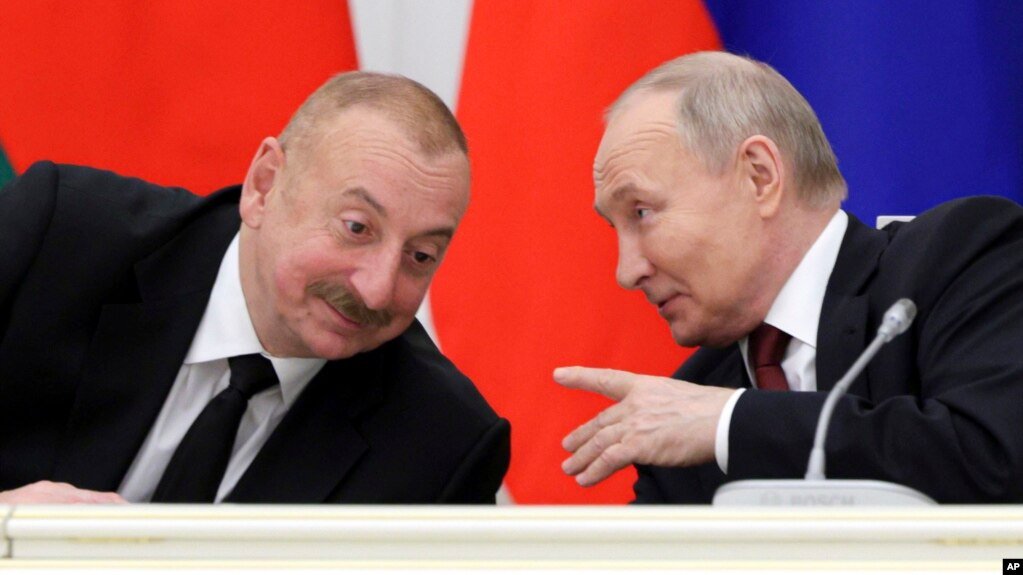MOSCOW/BAKU — September 5, 2025
A public debate hosted by the Echo Baku project sketched a bleak short-term outlook for Russia–Azerbaijan relations, with experts predicting no early summit between Presidents Vladimir Putin and Ilham Aliyev and a tightening focus on Azerbaijani diaspora figures inside Russia.
Speaking on the program, Nikolai Silaev, a senior researcher at MGIMO, said he does not expect top-level talks “in the near term,” though working-level contacts should continue. He also forecast “heightened interest” from Russian law-enforcement toward prominent members of the Azerbaijani community.
Rizvan Huseynov, director of the Center for Caucasus History, argued Moscow’s elite appears split, with security structures pushing a harder line. Baku, he said, is unlikely to make concessions—mirroring its posture in other recent diplomatic standoffs.
“Normalization tends to happen only when counterparts accept new regional realities,” he added.
The discussion followed the presidents’ failure to hold talks during events in China, dashing hopes that a meeting might cool rhetoric that has sharpened in recent months. Participants referenced media claims that Moscow sought an apology from Baku for recent statements, but said only a brief greeting occurred.
Silaev said recent strikes that damaged SOCAR-linked facilities in Odesa were driven by military targeting rather than political signaling at Azerbaijan, while Huseynov countered that the cumulative effect of such incidents—along with a drumbeat of hostile commentary in Russian media—has hardened views in Baku.
The pair also sparred over phrasing from President Aliyev’s interview with Al Arabiya. Silaev argued wording on the presidential website about a 1920 “Russian” occupation blurred Soviet and modern Russia, fueling backlash; Huseynov maintained the original reference was to the 11th Red Army and that controversy stemmed from interpretation, not substance.
On domestic fallout, Silaev rejected comparisons to ethnic persecution, calling recent high-profile cases procedural rather than anti-Azerbaijani. The host and Huseynov cited community anxiety over citizenship revocations and deaths during detentions, saying many in the diaspora perceive wider pressure.
The experts predict continued sharp rhetoric without top-level engagement, ongoing working-level coordination, and closer scrutiny of diaspora figures—unless there is a broader policy recalibration in Moscow that reopens a path to de-escalation.


